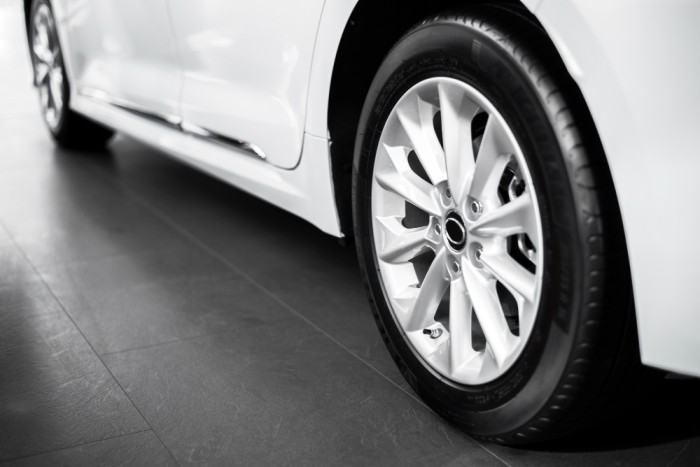
When it comes to vehicle safety, one aspect that often gets overlooked is tire safety. The only portion of your car that comes into direct contact with the road are the tires, and their condition plays a crucial role in ensuring your safety. Neglecting tire maintenance can lead to accidents, decreased fuel efficiency, and costly repairs. This Tire Safety 101 guide will walk you through the ABCs of keeping your wheels rolling safely. By the end of this article, you'll understand the importance of tire care and be motivated to contact an expert for a comprehensive examination.
A is for Air Pressure
Proper tire inflation is the foundation of tire safety. The correct air pressure ensures that your tires make optimal contact with the road, leading to better handling, stability, and fuel efficiency. On the flip side, underinflated or overinflated tires can be dangerous.
Underinflated Tires:
1. Reduced handling and stability.
2. Increased risk of blowouts.
3. Decreased fuel efficiency.
4. Uneven tire wear.
Overinflated Tires:
1. Reduced traction and grip on the road.
2. Uncomfortable and harsh ride.
3. Increased risk of tire damage.
4. Uneven tire wear.
Consult your owner's handbook or the placard inside the driver's side door frame to determine the proper tire pressure for your car. It is crucial to check the tension in your tires regularly—at least once a month—using a trustworthy tire pressure tester. Use the specified pressure levels when inflating your tires, and always do so before driving when cold.
B is for Tread Depth
Another important component of tire safety is tire tread depth. Your tires' tread gives you the traction and grip you need on various road surfaces, especially in inclement weather like rain and snow. W worn-out or bald tires might cause less handling and an increased chance of hydroplaning, which can result in accidents.
The minimum permissible tread depth in most states is 2/32 of an inch. However, replacing your tires for maximum safety is advised when they reach 4/32 of an inch or even sooner in rainy or snowy circumstances.
C is for Regular Inspections
Regular tire inspections are essential to catch potential issues before they become safety hazards. Here are some key components of a thorough tire inspection:
1. Check for visible damage
Look for cuts, cracks, bulges, or any other signs of wear on the tire sidewalls. Any of these issues could indicate a weakened tire that needs immediate attention.
2. Valve stem condition
Ensure the valve stems (where you inflate your tires) are not damaged or leaking air. A damaged valve stem can lead to air loss.
3. Wheel alignment
Uneven tire wear can result from improper wheel alignment. Uneven wear patterns indicate that the alignment of your car's wheels needs to be adjusted.
Tire safety is not something to be taken lightly. Neglecting your tires can lead to accidents, increased fuel consumption, and unnecessary expenses. By following the ABCs of tire safety - maintaining proper Air Pressure, checking Tread Depth, conducting Regular Inspections, and addressing Rotation and Alignment needs - you can keep your wheels rolling safely.
Remember that your driving environment also plays a role in tire safety. Whether you're dealing with extreme heat, cold, rain, or snow, adapt your tire choice and maintenance routine accordingly.
After reading this Tire Safety 101 guide, we hope you feel motivated to take action. Contacting a professional tire service is a smart move to ensure that your tires are in the best possible condition. They can conduct a thorough inspection, provide recommendations, and replace your tires if necessary. Your safety on the road depends on the health of your tires, so don't delay - schedule a tire service today!